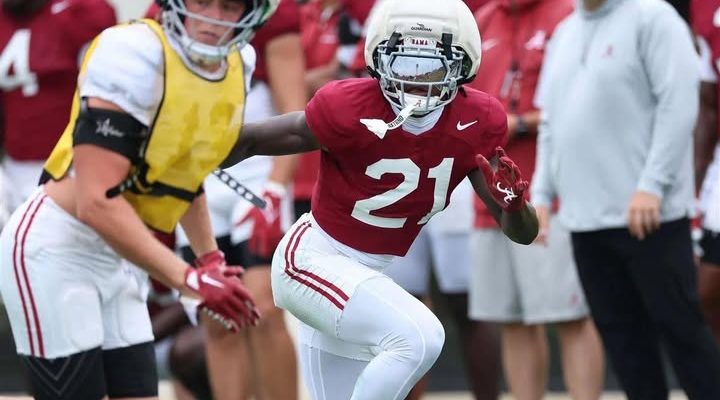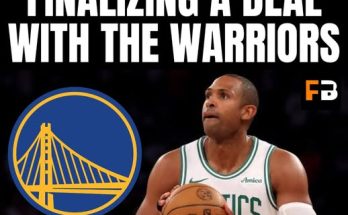The news coming out of Tuscaloosa has sparked quite a bit of conversation among fans and analysts alike, as Alabama has confirmed that one of its starting safeties will be forced to miss the first half of the upcoming clash against Wisconsin due to a targeting call in last weekend’s blowout victory over ULM. Targeting penalties are some of the most controversial in college football, and this latest incident has reopened the long-running debate about how the rule is interpreted and whether it is fair to penalize both the play and the player with such significant consequences. For Alabama, the suspension could not come at a more critical moment, as Wisconsin represents the team’s first true test of the season, and being without a key defender for half of the game could have major implications. But beyond the X’s and O’s, this story touches on broader questions about safety, fairness, and the balance between protecting athletes and maintaining the physicality that makes football what it is.
The incident itself took place late in Alabama’s dominant performance over Louisiana-Monroe, a game that was never in doubt. With the Crimson Tide up by an insurmountable margin, the safety in question came downhill aggressively to break up a pass, but the officials ruled that he led with the crown of his helmet and made forcible contact to the head and neck area of the ULM receiver. By rule, that is targeting, and after a brief review, the call was upheld. Immediately, Alabama fans voiced their frustration online, pointing out that the safety appeared to be lowering his shoulder, not his helmet, and that the receiver was also dipping down at the moment of impact, making it almost impossible to avoid some helmet-to-helmet contact. Still, once the call was made and confirmed, there was no turning back, and that means the safety will now sit out the first two quarters against Wisconsin.
For Alabama, the timing could not be worse. Wisconsin is known for its physical style of football, its reliance on the run game, and its ability to take advantage of mistakes in the secondary when defenses crowd the box. Not having one of the Crimson Tide’s surest tacklers and best communicators in the defensive backfield for the opening half could create opportunities for Wisconsin to strike early. Even if Alabama has the depth to plug in another talented defensive back, losing the experience and leadership of a starter in a high-pressure environment is a challenge. More importantly, it disrupts continuity, as the safety position requires strong communication with the corners and linebackers to make sure coverage assignments and run fits are correct.
But this situation goes beyond the tactical disadvantage. The bigger issue at hand is the targeting rule itself. Since its implementation, targeting has been one of the most debated topics in college football. Supporters argue that it is a necessary measure to protect players from serious head and neck injuries. The NCAA has consistently emphasized that safety must come first, and by enforcing strict penalties, the hope is that players will learn to adjust their tackling technique. Detractors, on the other hand, argue that the rule is inconsistently applied and often punishes players for actions that are unavoidable in the fast-paced, split-second world of football. They also point out that missing a half of a game, especially against a major opponent, can feel like a punishment that far outweighs the infraction.
In this particular case, many Alabama fans believe that the safety was simply making a football play. They argue that if the receiver had not ducked his head at the last second, the contact would have been clean, shoulder to chest, with no controversy. Instead, a moment of natural football collision turned into a game-altering suspension. Neutral observers have also weighed in, with some acknowledging that while the rule was applied correctly as written, it raises the question of whether the rule itself needs to be revisited. Should intent matter? Should the punishment be scaled based on the severity of the contact? Should players be allowed an appeal system that doesn’t immediately result in missing game time?
Of course, from Alabama’s perspective, the focus now shifts to adapting. Head coach Kalen DeBoer and his staff will have to make adjustments to ensure that the secondary is prepared to hold up without one of its key members in the first half against Wisconsin. That may mean leaning more on the run defense, disguising coverages to confuse Wisconsin’s quarterback, or giving younger players an early chance to step up. In some ways, this could be a valuable test for Alabama’s depth. Every championship-caliber team needs more than just its starters, and having a backup step in and deliver against a strong opponent could pay dividends later in the season when injuries or fatigue inevitably take their toll.
Still, it is undeniable that fans are frustrated by the timing and the rule itself. On social media, the conversation has been non-stop, with Alabama faithful arguing that the SEC and NCAA need to review how targeting is enforced. Others, including former players turned analysts, have echoed the sentiment that while safety is paramount, the game is in danger of penalizing defenders for doing their jobs. One analyst even pointed out that the defensive player is often in a lose-lose situation: lower your head too much and it’s targeting, but keep your head up and risk being trucked or missing the tackle entirely. In other words, the rule sometimes asks players to do the impossible.
On the flip side, proponents of the targeting rule remind us that football has a long and troubling history with head injuries, concussions, and long-term health effects. The rule may be unpopular in the moment, but it has likely prevented countless more dangerous hits by forcing defenders to change their approach. They argue that every controversial call is simply part of the growing pains of a necessary cultural shift in the sport. From that perspective, even if this specific call feels harsh to Alabama and its fans, it serves the greater good of making the game safer for everyone.
When Alabama takes the field against Wisconsin, all eyes will be on how the Crimson Tide defense performs in the absence of their starting safety. If the backups rise to the occasion and Alabama’s defense holds firm, the suspension may fade into the background. But if Wisconsin takes advantage and builds momentum in the first half, the targeting call against ULM could loom large as one of the turning points of the early season. Either way, it is a reminder that in college football, even the smallest moments can have ripple effects that shape entire games, if not seasons.
This is also a reminder of the fine margins in football. A split-second decision, a natural dip of the shoulder, or a referee’s judgment can alter not just one play, but the availability of a key player in a marquee matchup. That is part of what makes the sport so compelling but also so frustrating at times. Fans invest not only in the outcome of games but also in the fairness of how those games are decided. When rules feel inconsistent or excessively harsh, the passion that makes college football great can easily turn into anger and resentment.
As we move closer to the Wisconsin game, there will be continued debate about how Alabama should handle this absence and whether the targeting rule itself should be re-examined. But one thing is certain: this storyline has added even more intrigue to what was already a highly anticipated showdown. A powerhouse SEC program facing a proud Big Ten opponent is always must-watch football, and now there is an extra layer of drama. Can Alabama’s defense weather the storm without their safety? Can Wisconsin exploit the situation and seize early control? Will the player himself return in the second half with a chip on his shoulder, eager to prove his worth and make up for lost time?
This situation also invites fans from outside Alabama and Wisconsin to weigh in, because targeting is not just an Alabama problem—it affects every program, every defender, and every game. Everyone who watches college football has seen a targeting call that felt questionable, and everyone has likely felt the tension between player safety and game flow. It’s an issue that won’t be resolved overnight, but moments like this one remind us why the conversation is so important.
So as you follow this story and prepare for Saturday’s big game, think about where you stand on the targeting debate. Do you believe the rule is necessary and that the punishment is appropriate? Or do you feel that it goes too far, punishing players for unavoidable contact and taking away from the spirit of the game? Alabama fans certainly have their opinions, but what about you? Do you think missing an entire half is fair for a borderline call? Or should the NCAA consider alternatives, such as fines, warnings, or shorter suspensions?
The beauty of college football lies in its passion, its debates, and the way it brings people together to argue, cheer, and celebrate. This targeting call has reignited one of the sport’s most divisive debates, and your perspective is part of what makes the conversation meaningful. Share your thoughts, comment below, and let’s keep this discussion alive. Do you think the rule is working as intended, or is it time for change? Does Alabama have enough depth to overcome this loss, or will Wisconsin take advantage? This is the kind of storyline that makes college football so compelling, and your voice matters in shaping how we all view it.
By the end of the game, the story may be about Alabama’s resilience, Wisconsin’s opportunism, or the continuing controversy surrounding targeting. No matter what happens, it is clear that this rule, this call, and this suspension have already made their mark. Now it’s your turn—what do you think?



